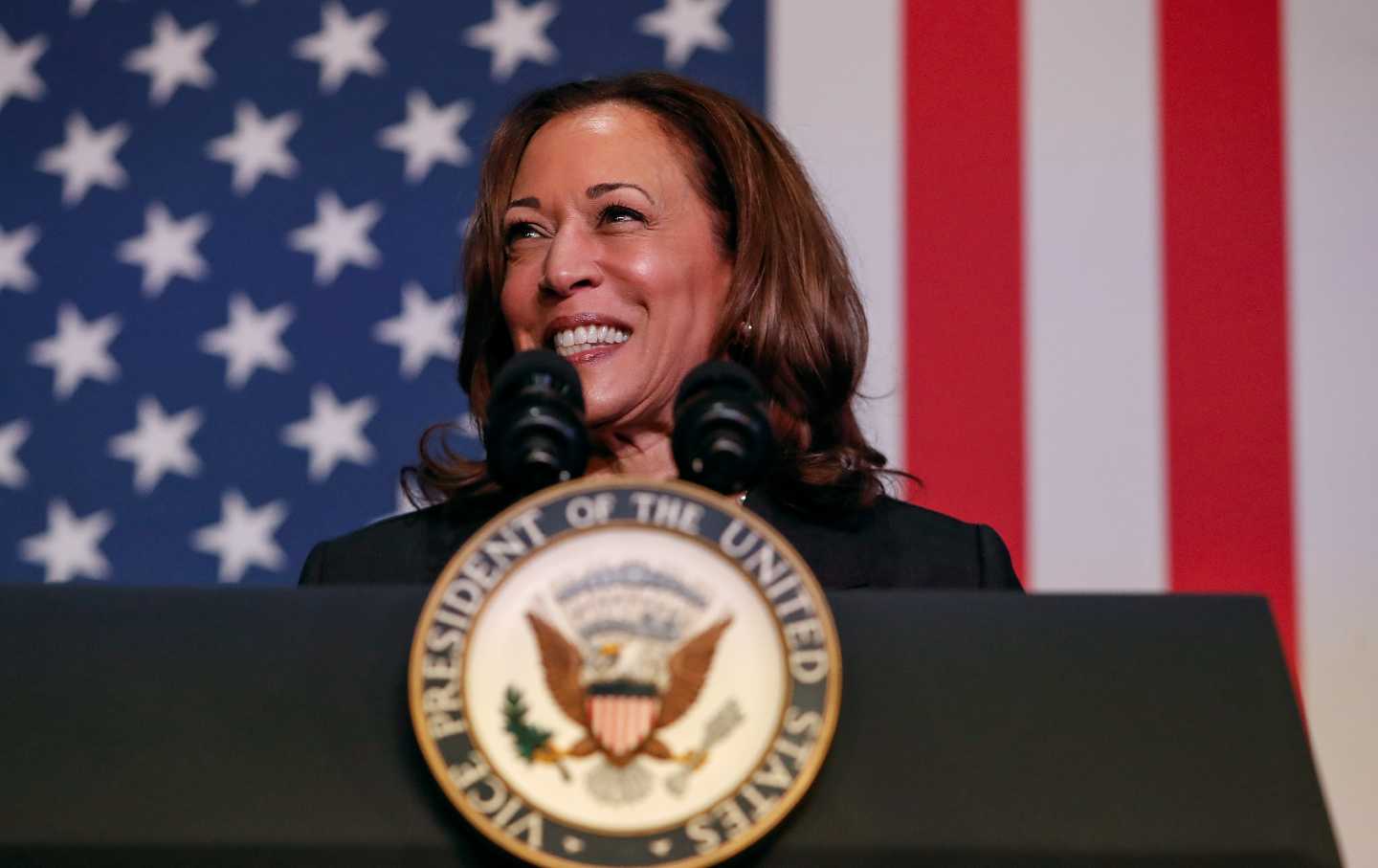July 20, 2024
Democrats deserve a candidate who can lift the whole ticket, not drag it down to defeat.
If a week is a long time in politics, three weeks can seem like an eternity. Yet it was more than three weeks ago that Joe Biden’s disastrous performance in his debate with Donald Trump—a debate that the Biden campaign deliberately scheduled months before he’d even been nominated so the president could put to rest mounting doubts about his ability to defeat his rival a second time—brought into the glare of public attention something Biden’s inner circle and the Democratic leadership must have known for months. At the age of 81, Joe Biden no longer has the mental sharpness, pugilistic stamina, command of the facts (or the English language) to win in November.
Running for president is a grueling ordeal that makes running a marathon look like a walk in the park. Doing it in the full glare of an unforgiving and often hostile media takes an immense toll even on a candidate as young and fit as Barack Obama. Actually serving as president is more brutal still.
Yet until June 27, Biden had the near-unanimous support of his party. Here at The Nation, while we’ve often been critical of the president’s policies—especially his unconditional support for Israel’s criminal war in Gaza and his apparent aversion to negotiating an end to the war in Ukraine—no one seriously argued that Biden shouldn’t run, or that he couldn’t win, in 2024. After all, Democrats’ policies on abortion rights, workers’ rights, voting rights, student debt forgiveness, and climate change were all more popular than their opponents’. Plus the economy was performing surprisingly well—even delivering the Holy Grail of a soft landing from inflation—and there were still more registered Democrats than Republicans.
But all of that rested on an unspoken premise: Biden beat Trump before, so he could do it again.
The Democratic Party has never been an ideologically driven or even politically consistent organization. The party of the white South, urban immigrants in the North, and coastal factory workers under FDR became the party of Rust Belt workers, urban elites, African Americans, and Southern liberals under Bill Clinton—a coalition that sustained him through two terms, but whose Wall Street and Hollywood donors were unable to carry his wife into the Oval Office. Coming from the tiny state of Delaware, Biden never really had a national base, which is one reason all his previous efforts fell short.
Current Issue

What he had going for him in 2020 was that he was running against Bernie Sanders—and they were both running against Donald Trump. Sanders’s early victories prompted the party bosses, who never accepted his progressive populism, to line up quickly once Jim Clyburn gave Biden the nod—a reward for Biden’s faithful service as Obama’s VP; Trump’s record in office, combined with Covid (and Trump’s disastrous management of the pandemic) quickly brought Biden’s rivals on side.
Since April 8, 2020—when Sanders ended his campaign—the Democratic Party has been united by a single, arguably noble, cause: keeping Donald Trump out of the White House. President Biden may have a lot on his plate, but defeating Trump is candidate Biden’s only job. And delivering one decent speech or surviving a press conference is never going to undo the disaster we all witnessed during that debate. Biden needs to take the win of his first term, accept the thanks of a grateful nation for delivering us from Trump in 2020—and then exit gracefully and allow someone who can compete fiercely in 2024 to carry on the fight. Because as John Nichols points out, Trump remains eminently beatable.
Kamala Harris is the candidate best placed to lead the Democrats to victory—not just at the top of the ticket but also in the House and Senate races that will be crucial in delivering the changes this country so desperately needs: Medicare for All (which Harris endorsed in 2017), restoring a woman’s right to control her fertility, securing the right to vote—and the right to join a union, adequate funding for childcare and parental leave, a path to citizenship for millions of immigrants currently living in fear, bold action to address climate change (Harris was an early backer of the Green New Deal), rebalancing the Supreme Court, and a fresh approach to the stalemate in Ukraine and the slaughter in Gaza.
The demands of the moment are enormous, and the risks of another Trump administration—to our democracy, our society, and our planet—terrifying to consider. But Harris’s positions on policy questions are not primarily what commends her candidacy. As Joe Biden’s loyal vice president, she is the only person who can justifiably run on the administration’s record of successes, the best person to defend his legacy, and the only potential candidate with a truly national reputation.
Harris has earned her moment—and if Biden cares about his legacy, he will do his best to make the transition as seamless as possible, either by resigning the presidency (should a man too impaired to campaign effectively really remain as commander in chief?) or by endorsing her in the strongest possible terms.
There are practical, process and political difficulties to overcome with any succession. Biden can’t simply hand over his delegates; he’ll have to release them, landing the party in uncharted waters.
Some have argued for an open convention; Harris’s backers have rightly flagged such talk as aimed at her. And since most of the pledged delegates were chosen precisely for their loyalty to Biden, they can hardly be called representative of the whole party. As Joan Walsh reports in her exclusive interview with the vice president, Harris is ready—if still understandably reluctant. Shunting her aside would insult the Democrats’ most faithful constituency.
Harris has her own liabilities, but as Jeet Heer noted the morning after the debate, “none of them are as bad as the problem of Biden’s age, which is dragging his reelection bid down to disastrous defeat.”
It took a little while for centrist pundits to catch up, a while longer for the party’s donor base, and even longer for down-ballot candidates to summon up the courage to try to avert an impending electoral disaster. But by last weekend Nancy Pelosi was engaged—at first behind the scenes through surrogates and then more openly. Even Obama, the sphinx of American politics, has reportedly stirred himself.
Eventually Joe Biden will have to face the facts. Because the longer this drags on, the more the Democratic Party’s support will continue to bleed out into despair, apathy—and, if it lasts too long, electoral defeat.
Popular
“swipe left below to view more authors”Swipe →
Elevating Harris now would be an electrifying move, deflating in an instant the Republicans’ post-convention bounce, bringing younger voters back to the party and offering the media an irresistible reset from the interminable nightmare narrative of two old men battling in the twilight. Instead of focusing on Trump’s lies, or J.D. Vance’s Faustian bargain, we’d all be wondering whom Harris should nominate as her vice president—another potential rocket boost for the Democratic ticket.
As Shakespeare reminds us, ripeness is all. So please, President Biden, don’t deliberate much longer. Because we know what happens when ripeness waits too long. It turns rotten. You deserve to be remembered as the man who saved his country. We deserve a brighter future than four more years under Donald Trump. Kamala Harris deserves her moment to shine.
Do the right thing—and do it soon.
Thank you for reading The Nation
We hope you enjoyed the story you just read, just one of the many incisive, deeply-reported articles we publish daily. Now more than ever, we need fearless journalism that shifts the needle on important issues, uncovers malfeasance and corruption, and uplifts voices and perspectives that often go unheard in mainstream media.
Throughout this critical election year and a time of media austerity and renewed campus activism and rising labor organizing, independent journalism that gets to the heart of the matter is more critical than ever before. Donate right now and help us hold the powerful accountable, shine a light on issues that would otherwise be swept under the rug, and build a more just and equitable future.
For nearly 160 years, The Nation has stood for truth, justice, and moral clarity. As a reader-supported publication, we are not beholden to the whims of advertisers or a corporate owner. But it does take financial resources to report on stories that may take weeks or months to properly investigate, thoroughly edit and fact-check articles, and get our stories into the hands of readers.
Donate today and stand with us for a better future. Thank you for being a supporter of independent journalism.
More from The Nation
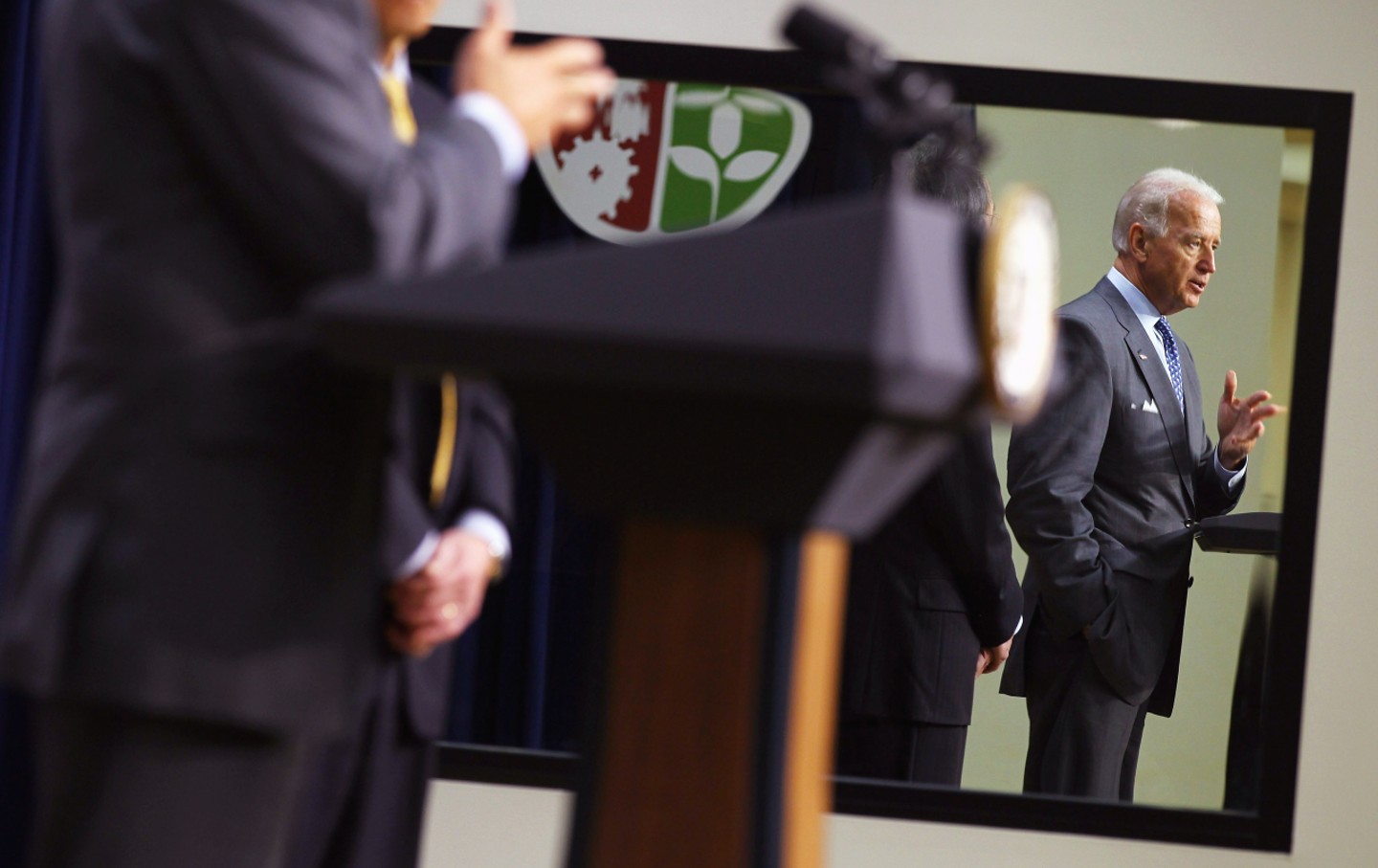
And so does the president. As he decides his future, Joe Biden has to come to terms with the war within himself.
Jeet Heer
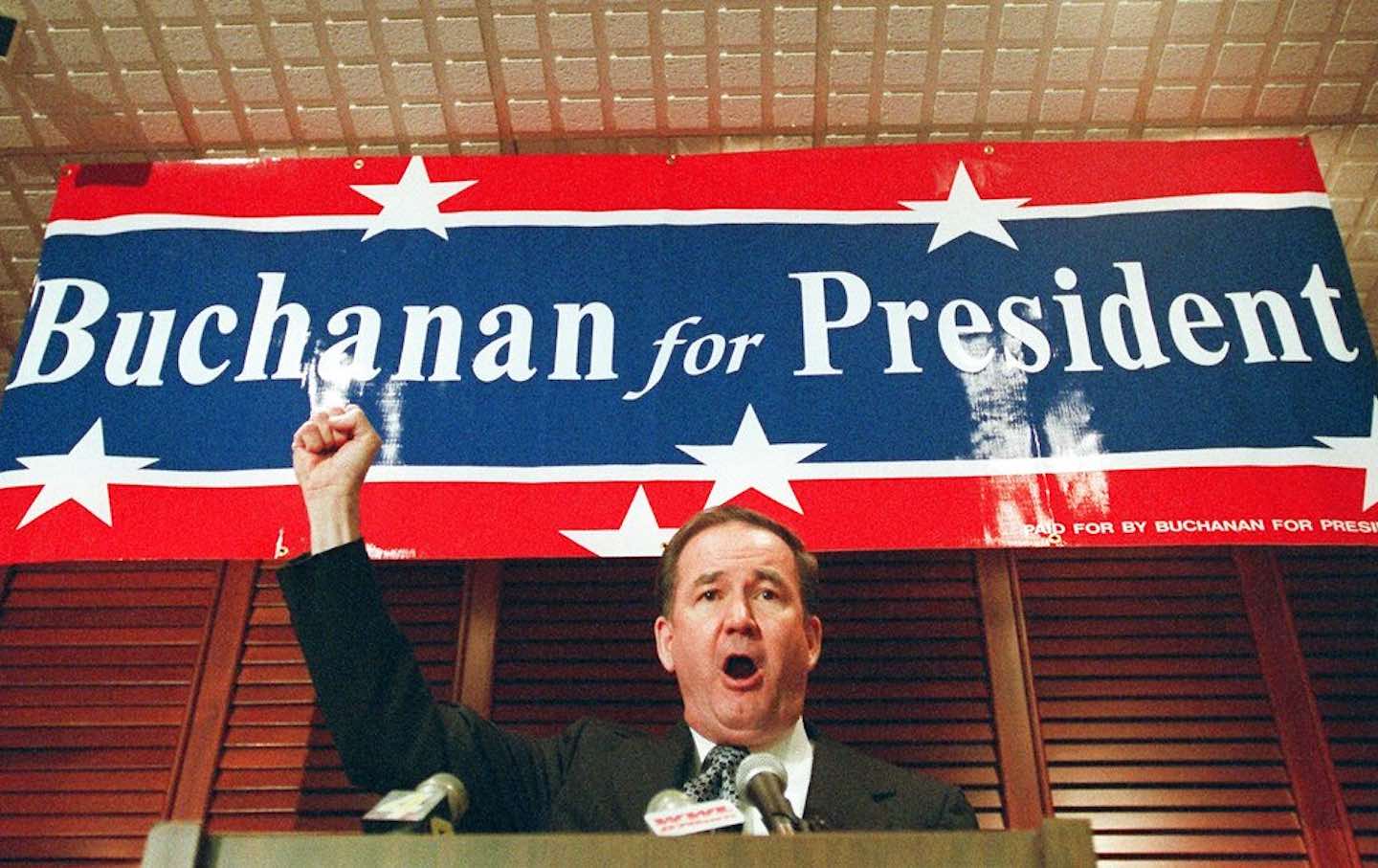
J.D. Vance’s RNC speech signified a return to the blood-and-soil politics at the core of Buchanan’s failed presidential runs in the 1990s.
Chris Lehmann
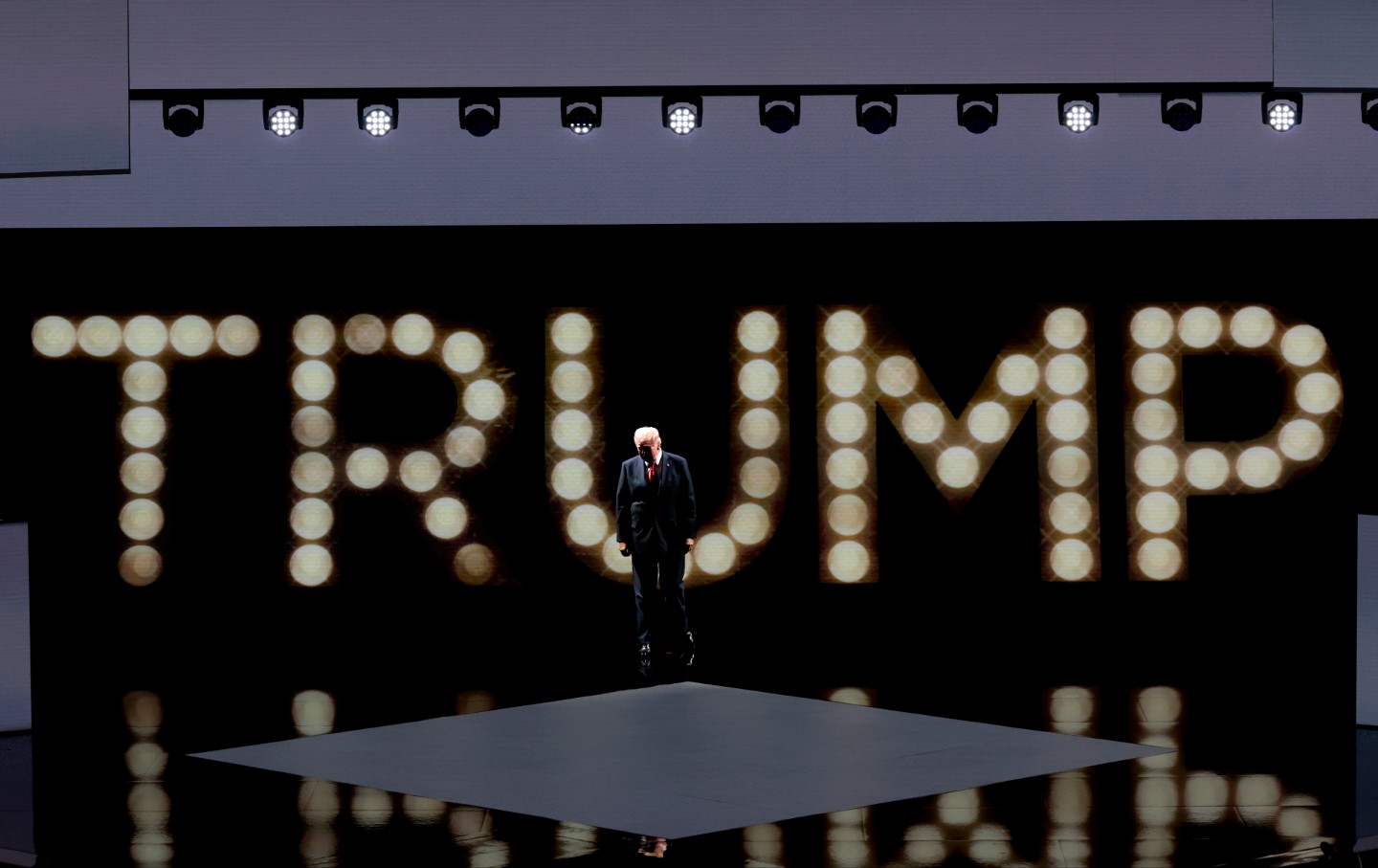
Trump’s surreal, subdued, and unfocused address gave Democrats an opening to turn the tide of this campaign.
John Nichols

The Republican vice-presidential candidate’s speech last night was a guided missile aimed at working-class voters. Countering it will take a lot more than not being Donald Trump.
D.D. Guttenplan
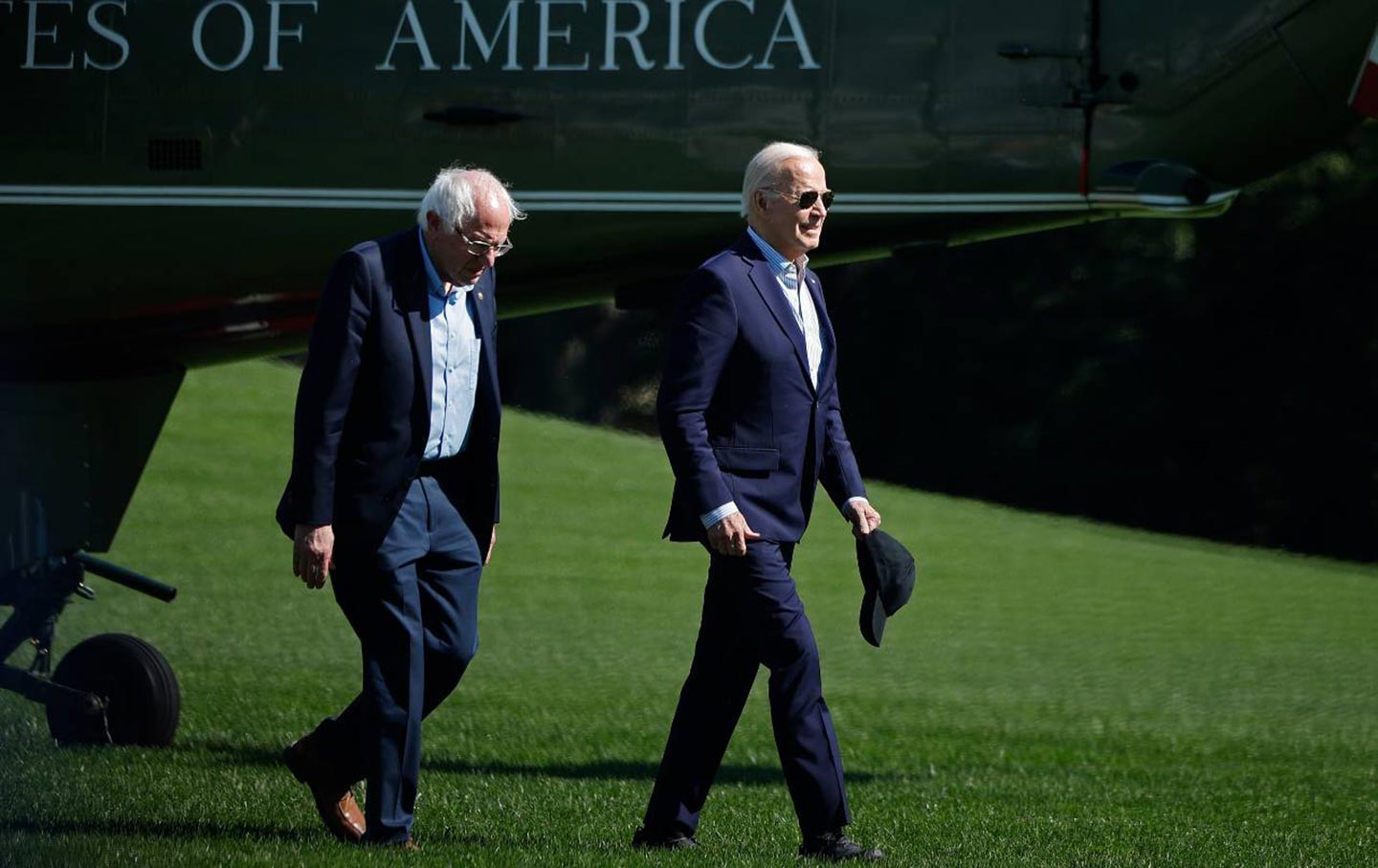
A wounded Biden is running on a platform that progressives have long dreamed about.
Jeet Heer
